
The Asheville Film Society closes out the year with a W.C. Fields double-feature. One film—Million Dollar Legs (1932)—is almost legendary, while the other—Tillie and Gus (1933)—is virtually unknown. Neither film is much seen these days, and neither is available on home video—at least in the US. Million Dollar Legs is a wild political comedy that has Fields as the President of Klopstokia, a mythical country where the chief imports and exports—not to mention the population—are goats and nuts. The screenplay was primarily the work of future director Joseph L. Mankiewicz (of All About Eve fame), who was given a free hand to do whatever he wanted, so long as it ended up in a situation involving the Olympic games in Los Angeles. Well, he managed the latter and took advantage of the former to slap together one very off-the-wall movie that never for a moment bothers to make a great deal of sense. Tillie and Gus, on the other hand, has a reasonably constructed story about saving an inheritance and a ferry-boat franchise from a crooked lawyer (Clarence Wilson). And it’s not nearly as much fun, but it’s made into a very pleasant hour’s entertainment by the inspired teaming of Fields and Alison Skipworth. They’d been paired in their episode of the previous year’s If I Had a Million and would be paired once more the following year’s Six of a Kind. This, however, is their best teaming, simply because no one else could possibly be as perfectly suited to being a pair of supposed missionaries, who are in reality cardsharps and con artists. The two films make for a nice two hours of fun—and a good way to see the year out.
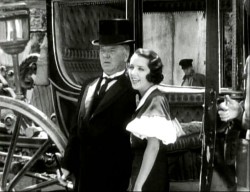
Not to sell the entertainment value of Tillie and Gus short, but Million Dollar Legs is by far the more interesting of the two movies. It’s also perhaps more flawed—not in the least because it can’t seem to figure out just how to end the preceding 60 minutes of lunacy and wraps up abruptly with a relatively lame gag that’s not very satisfying. However, most of the material leading up to it is choice—and deliciously anarchic in its complete lack of interest in such things as logic, coherence, structure—or even much of a story. In some cases, that might be seen as a downside, but within the confines (if that they can be called) of a film like this, it’s actually in the plus column.
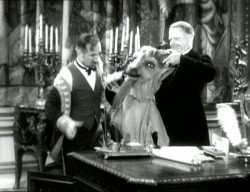
Overall, Million Dollar Legs can be viewed as part of a brief outburst of political satire from the period and is generally lumped in with the Marx Brothers in Duck Soup (1933) and Wheeler and Woolsey in Diplomaniacs (1933). (While cases could be made for the inclusion of The Dark Horse and The Phantom President—both from 1932—those films are far less fantasticated.) Set in one of those mythical postage stamp kingdoms that Paramount seemed to be so fond of—you know, the sort of place where you might believe W.C. Fields or Groucho Marx could be president—it nevertheless insists on having a form of government that has more than a passing resemblance in terms of positions to the United States. Granted, I don’t believe that the US ever chose a president based on him being able to defeat his opponent in a strongman competition, but that’s a small consideration.
In any case, Fields is The President (he seems to have no other name) and he’s not only beleagured by a cabinet that wants to depose him (they pledge their allegiance to him with their fingers crossed behind their backs), but he’s also tussling with the fact that the treasury of Klopstokia is in debt up to its ears (at least in 1932 terms). At least, he’s aware of both (he returns his cabinet’s pledge with the offer “the hearty handclasp of friendship,” but with a knife in his hand).
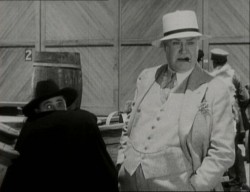
Though we’re assured that spying is impossible in Klopstokia, there’s much evidence to the contrary—mostly in the guise of cross-eyed silent film comic Ben Turpin, a very obvious spy (dressed in a black cape and a slouch hat). While he pops up everywhere, the movie is blissfully uninterested in just who he’s spying for, since he never reports to anyone. He just lurks in the background and appears in unlikely places. All that matters is that he’s a spy, I guess, and I’m OK with that because it’s in keeping with the tone of the proceedings, which—despite the ties to the two films that follow it—resemble nothing so much as a very long Max Fleischer cartoon. All that matters is the individual gag.
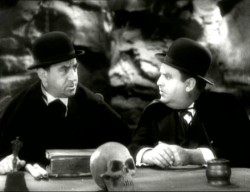
The plot—to the degree that there is one—has Fields trying to raise $8 million with the help of his daughter’s (Susan Fleming—better known as Mrs. Harpo Marx) suitor American brush salesman Migg Tweeny (Jack Oakie). The idea is that Tweeny’s athletic obsessed boss (George Barbier) will shower money on the country if they win at the Olympics. Working against this is Fields’ chief opponent, the Secretary of the Treasury (Hugh Herbert), who has enlisted the aid of Mata Machree (Lyda Roberti), “the woman no man can resist,” even though her butler insists that “Madame is only resisted from two till four in the afternoon.”
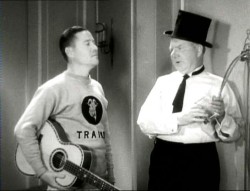
The plot, though, only exists to have something to string together the gags. This isn’t a movie you come away from remembering the plot. You come away remembering the jokes and oddities. You get Jack Oakie trying (and finally succeeding) to sing the Klopstokian love song “Woof Bloogle Gik”—set to the tune of “One Hour with You” and printed on the skin of Susan Marx’s grandfather. You have Fields often simply enjoying himself—as in his opening scene where he dictates a letter to General Waggonal and keeps getting worked up to a point that he’s demoted the man to a private by the end of the dictation, which hardly matters, since Fields then throws the dictiophone out the window.
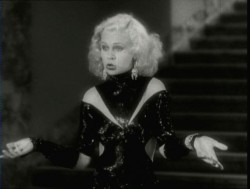
You have secret societies meeting in a secret subterranean room accessed via a hydraulic palm tree. And you have Lyda Roberti entering descending a magnificent stairway (courtesy of the Love Me Tonight sets) to “Pomp and Circumstance,” only to arrive and spout (in phony Swedish dialect),“Isn’t somebody been going to say something?” (She follows this with a song about what a hot babe she is.) You can perhaps see why this is all more memorable than the story. Oh, and the summer Olympics in Los Angeles? They’re sort of in there somewhere, though it’s mostly seen in the form of newsreel shots that are intercut with the attempts by the Klopstokian team and Hugh Herbert’s attempts to ruin their chances.
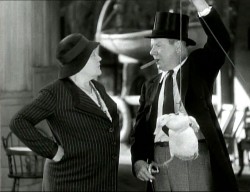
Tillie and Gus, on the other hand, is very straightforward and plot-driven, though the plot is hardly complex and amounts to no more than I stated at the beginning. Much is often made of the fact that this was director—and co-writer—Francis Martin’s only feature film, but really the direction isn’t all that shabby. The film is a little clunky, but it has a nice shambling feel to it and benefits greatly from the use of many sunny California exteriors, giving the whole thing a cheerful feel. There’s a freshness that can be felt in the look of some films—notably comedies, usually silent ones—from the 20s and 30s in those pre-smog days that makes them hard to resist.
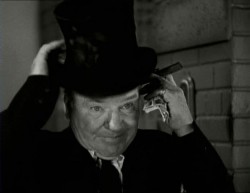
For that matter Augustus Q. Winterbottom is one of Fields’ prime screen roles. This is the film where he responds to the query, “Do you like children?” with, “I do if they’re properly cooked.” Though he and his ex-wife Tillie are on the side of the good guys and seem to develop a fondness for Tillie’s niece, her husband, and their child, there’s nothing sentimental about either of them. It’s quite clear that they’re in this for their own gain. Everyone thinks they were off doing missionary work in Alaska and China. In fact, Gus was merely wandering through the great north cheating at cards (“I’m a broadminded man, gents. I don’t object to nine aces in a deck, but when a fellow folds down five aces in one hand—and besides I know what I dealt him”), while Tillie was running a bar-gambling den in China. There’s also no love lost between the pair (they try to shoot each other on sight), but they’re happy enough to band together in this case.
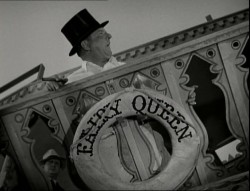
Unlike Million Dollar Legs, Tillie and Gus boasts a pretty strong finale. It’s a little disjointed and it seems unfair that the title characters—involved in rescuing Baby Leroy from a watery grave—don’t get to ride the ferry boat to victory, but it’s still a solid ending. Actually, it was good enough that John Ford appropriated it—and improved upon it—in 1935 for Steamboat ‘Round the Bend, which perhaps says something. Still, what sells the picture is Fields first—and the teaming of him and Skipworth coming in a strong second.



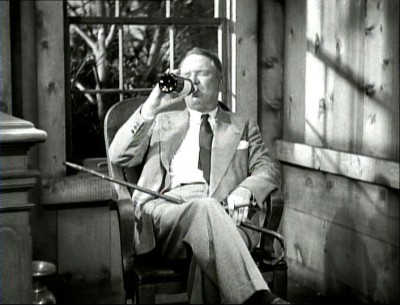
Before you comment
The comments section is here to provide a platform for civil dialogue on the issues we face together as a local community. Xpress is committed to offering this platform for all voices, but when the tone of the discussion gets nasty or strays off topic, we believe many people choose not to participate. Xpress editors are determined to moderate comments to ensure a constructive interchange is maintained. All comments judged not to be in keeping with the spirit of civil discourse will be removed and repeat violators will be banned. See here for our terms of service. Thank you for being part of this effort to promote respectful discussion.